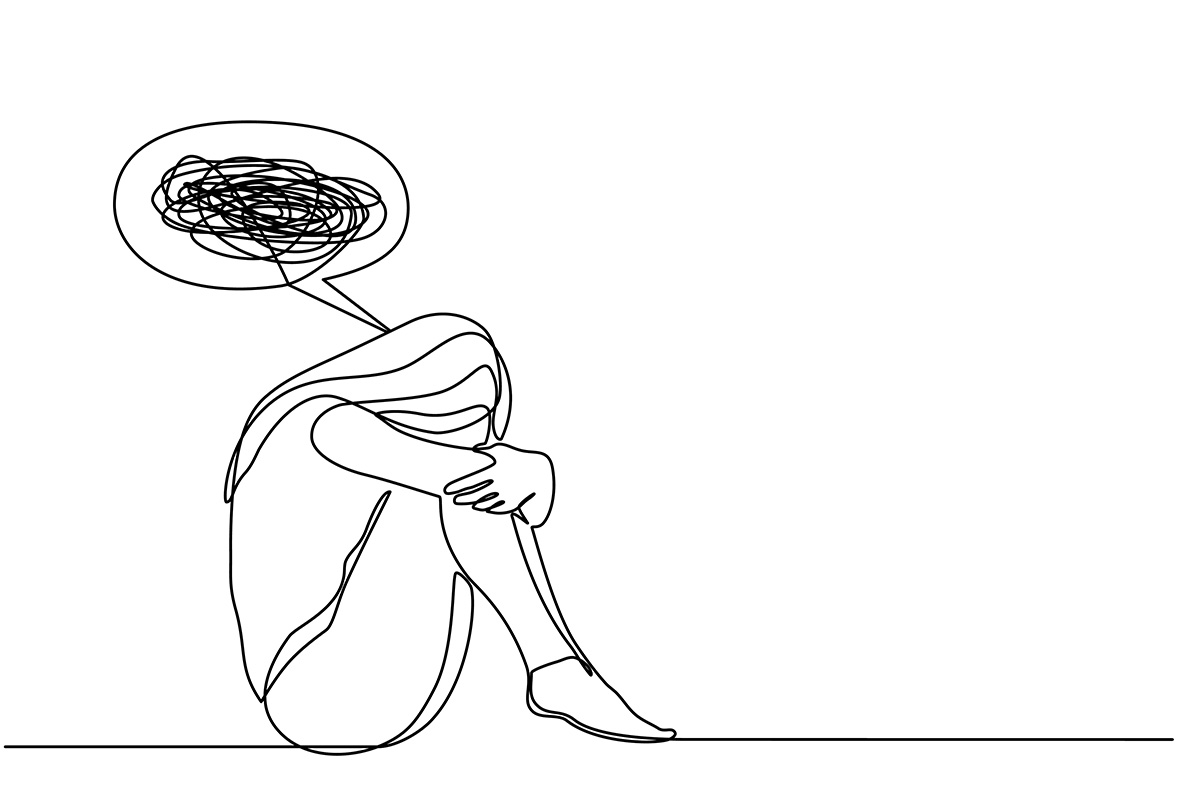Mental health problems can happen to anyone. They stem from a variety of things, examples include traumatic events, genetics, family conflicts and environmental reasons. However, society has a negative outlook on seeking help for mental health issues.
Among all adult age groups, suicidal thoughts are the most prevalent in ages 18-25. A new national survey also reported that rates of depression and anxiety among college students are at historic levels.
A factor to this is certainly the stigma that is surrounding therapy and medication especially. Despite mental health problems being just as serious as physical health problems, society frowns upon admitting that you need help and prejudice and discrimination prevent many from seeking it.
Prolonged untreated mental health affects people on a lot of different levels. It not only makes conditions worsen and become harder to treat but can also prevent them from having healthy relationships and a better overall quality of life. 40% of people report that they were prevented from getting medical help for their mental health due to stigma.
The five subscales of stigma are alienation, stereotype endorsement, discrimination experience, social withdrawal and stigma resistance. The subscales describe the experience faced and the extent to which some will avoid treatment based on fear of discrimination or judgment from others.
Effects vary due to different factors such as age, race, and gender and everyone is affected in different ways.
Men are often expected to repress their emotions, tough it out and “be a man” in society. This is a contributing factor to the statistic that males have a suicide rate that is 4 times higher than females.
On the other hand, women with mental health issues often face dual discrimination. Women often are presented as being over-emotional, dramatic, and attention-seeking in society. This leads to internalizing, which creates decreased self-esteem and less likelihood to seek treatment.
A better understanding of mental health in society can benefit so many people. Getting treatment as soon as symptoms are noticed will prevent them from worsening and more acceptance will create more resources, such as peer support programs.
My own experience with stigma includes participating in therapy and medication at a young age, which happened to be of significant need. A person close to me told me that I was “being dramatic” and that I “didn’t really need it.”
This got to my head, causing me to stop participating, which affected me severely in a negative way in the long run. However, it is better late than never, and I am so glad I have gotten some of the help I need from the resources that I sought out.
When my friends reach out to me with their own mental health issues, I feel better about the advice and coping strategies that I am able to give them. I would recommend therapy to anyone going through a hard time and found it to be extremely helpful.
I hope that this article will encourage people to educate themselves on evidence-based approaches, be more accepting and open-minded and spread awareness whenever it is possible. It is also that you will get help if you need it, and as soon as you can.
Jochum can be reached at [email protected].








Harold A Maio • Apr 12, 2024 at 6:34 am
Addressing the stigma surrounding mental health
Your confusion is not unusual, addressing those taught and teaching that prejudice is the real issue.
We seem far too willing to accept them.